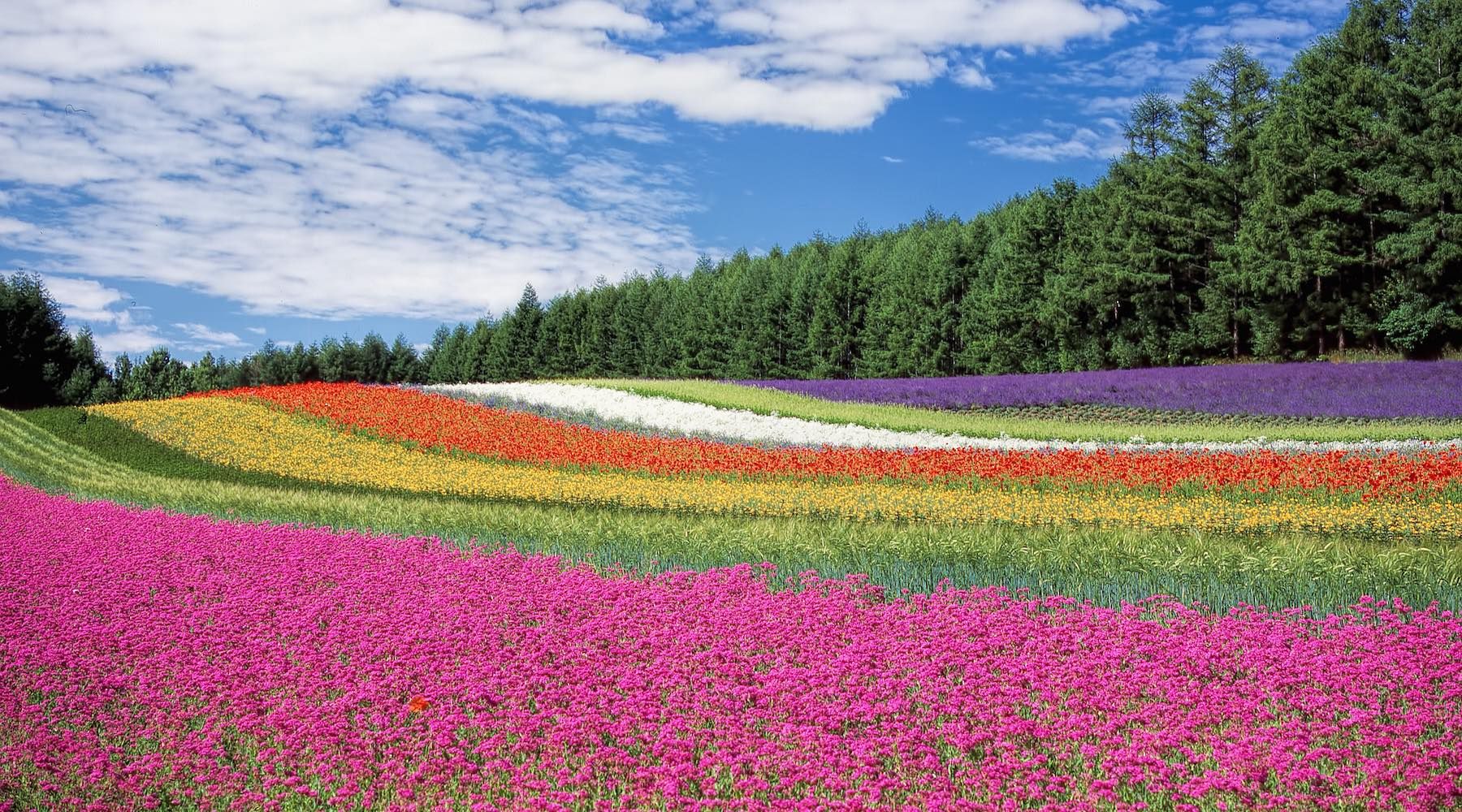(Aimee Lutkin) A farm is its own ecosystem, but many conventional practices strip away the life cycle of all the creatures living in it by using pesticides. This makes sense, since crops can be decimated by the wrong kind of insect or other invader.
by Aimee Lutkin, June 2nd, 2019
But pesticides have created a number of problems; not only do pests become gradually resistant to the poison, the use of the chemicals can be unhealthy for workers and potentially for the people who come in contact with the produce in their food cycle.
Fast Company reports that many organic farmers are going back to older practices by cultivating an environment where natural pest predators can live. They’re growing flowers amongst their other crops, creating a home for creatures like parasitic wasps, who eat aphids in their larval state. It’s been a common practice to grow flowers around the perimeter of farmland acres, because it encourages biodiversity. But agriculturalists are experimenting with strips of flowers within their crops, creating a highway for bugs to travel farther and cover more ground for pest control.
It’s an especially popular experiment in the U.K., where researchers Ben Woodcock and Richard Pywell are studying the new tactic at the Center for Ecology and Hydrology. They say that planting flowers to encourage bugs may seem obvious, but a certain amount of precision is needed to encourage the right kind in the right amounts, which requires more modern monitoring techniques.
Buy Orgonite Cell Phone Protector (Helps Negate Harmful Radiation)
“The wide-scale adoption of precision agricultural systems, particularly GPS mapping and precision application technologies, means that it should now possible to implement and protect these in-field habitats,” they wrote to Fast Company in an email. “This would have been very challenging a few years ago. While this is unlikely to eliminate the need to apply pesticide, it may mean that pests populations are maintained below levels at which they cause damage to crops for longer periods, thus reducing the number of pesticide sprays applied.”
Good to be a bee in the vineyard #vineyardlife #covercrops #organic
A post shared by Stuart Dudley (@stududleynz) on
The flowers are particularly important as scientists struggle with the widespread and terrifying phenomenon of beehive death. There are various explanations for why bee colonies have been dying in huge swathes across the world, but many think that overuse of pesticides is a contributing factor.
Other countries have been experimenting, too; in Switzerland, researchers planted a mix of poppies, cilantro, dill, and other flowers in combination with fields of wheat. They found that bugs who eat pests that eat wheat were encouraged by the flower growth, particularly ladybugs. Leaf damage declined by 61 percent. The goal is to find a mix of plants that help increase yield, which would justify the care required to cultivate them.
Even if flower production became simply another tool in the toolbox for farmers, it could dramatically reduce the use of pesticides—and they’re also very pretty to look at.
Stillness in the Storm Editor: Why did we post this?
Restoration of the environment is imperative to restore human health and life in general. The environment is the womb that nurtures and rears the human organism, humanity. It acts as the external immune system, as well as the source of life and biodiversity for various human endeavors. Additionally, human beings are, by all accounts, the most intelligent species on the planet, requiring that we use this gift wisely to maintain a viable living space for all life. The preceding information provides a ray of hope for the restoration of the environment. This information raises our spirits and helps awaken others to their cosmic duty to protect life with the life they have been given—which once realized fully, indicates a consciousness capable of true sovereignty and world-healing action.
– Justin
Not sure how to make sense of this? Want to learn how to discern like a pro? Read this essential guide to discernment, analysis of claims, and understanding the truth in a world of deception: 4 Key Steps of Discernment – Advanced Truth-Seeking Tools.
Stillness in the Storm Editor’s note: Did you find a spelling error or grammar mistake? Send an email to [email protected], with the error and suggested correction, along with the headline and url. Do you think this article needs an update? Or do you just have some feedback? Send us an email at [email protected]. Thank you for reading.
Source:
https://www.greenmatters.com/renewables/2018/02/06/TRQBR/farmers-pesticides-chemicals

Very important and informative blog. Fantastic benefits related to pest control by flowers. Thank you for sharing such post….